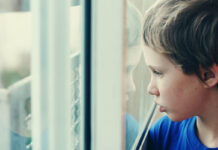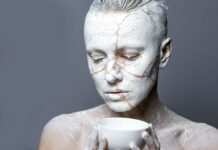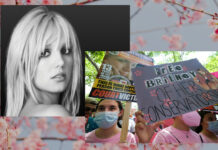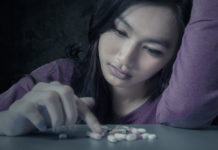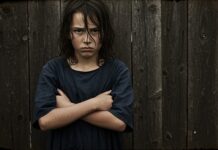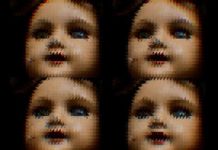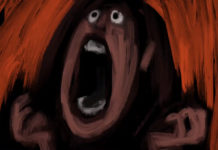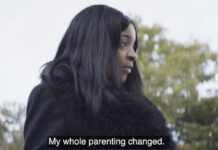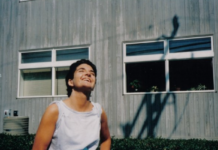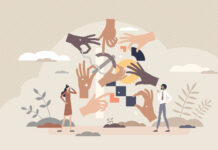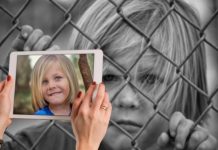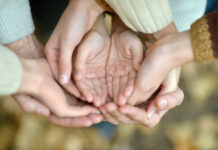Antidepressants in Pregnancy—Turning a Blind Eye, Again
You might think that telling women about the potential risks of taking antidepressants during pregnancy would be uncontroversial.
As a Psychologist, I’ve Seen Many Children Misdiagnosed as Autistic—It’s a Clinical Catastrophe
The ASD diagnosis glosses over the many developmental specifics that might underlie a child’s challenges related to social communication.
It’s the Cracked Ones Who Let the Light in
The identified patient is often the healthiest: a lighthouse desperately pointing the way to the wounds and power imbalances in the family.
Arrested Development: Britney Spears’ Memoir Is a Survivor’s Tale of Generational Trauma, Psychiatric Abuse,...
Miranda Spencer discusses Britney Spears' new memoir and the harms of conservatorship.
How the Troubled Teen Industry Turns Pain Into Profit
These programs, though marketed as "therapeutic," are nothing more than profit-driven enterprises that exploit families at their most desperate.
How “Mental Health Awareness” Exploits Schoolchildren
Imagine being a parent at a meeting with educators to discuss Johnny's academics or behavior. Suddenly, your child’s teacher is telling you that he needs to see a doctor for an assessment of a suspected “mental disorder,” which usually leads to a prescription for medication. Warned of “the risks against failing to intervene,” you will likely acquiesce.
The Report That Erased Me: How Misdiagnosis and Neglect Delayed My Healing
What looks like defiance is often a child screaming: "I don't know how to trust you, prove me wrong."
School Phone Bans and “Mental Health”
Banning school phones is not an answer to improving mental health.
State Hospital Memories: More of My Story
The Detroit Free Press did an excellent job in bringing to light the conditions at Pontiac, its loss of accreditation, and closing. Still, they didn't quite grasp the severity of violence there.
Hereditary Madness? The Genain Sisters’ Tragic Story
The story of the Genain quadruplets has long been cited as evidence proving something about the supposed hereditary nature of schizophrenia. But who wouldn’t fall apart after surviving a childhood like theirs? The doctors attributed their problems to menstrual difficulties or excessive masturbation — anything except abuse.
Catherine’s Story: A Child Lost to Psychiatry
A year ago today, our youngest child died, thanks to the adversarial actions and toxic treatments foisted on her by medical-model psychiatry. By telling her story, we hope to promote systemic change.
“Get Over It”? A Response to Empower Parents to Repair Instead of Victim Blame
An epidemic of children blaming their parents in therapy? In my 20 years as a psychologist, I've seen the opposite.
Boy, Interrupted: A Story of Akathisia
I watched my son’s life change almost overnight. He developed akathisia from antidepressants, taken as prescribed for just a few weeks for garden-variety anxiety.
Memories of a Childhood in a Mental Hospital
My stay at the hospital had no impact on the problem that led to my admission. But it did exacerbate other problems and change me in fundamental ways. I am a deformed product of that ‘cutting-edge facility’ and the ‘treatments’ I received there — social isolation, pills and shots, ice bath and ECT.
Conservatorship: The Racket That Ruined My Father’s Last Years
I have watched as my father’s pursuit of happiness was swept away by the court system in his senior years.
Guardianship Destroyed My Family
People who can’t take care of themselves need support and protection, but guardianship provides neither. I know: I've lived it.
Screen Time for Children Under Three: A Trigger for Virtual Autism?
"A Stone Unturned" weaves together the research and stories of autism symptoms reversed by removing screens and adding more parent engagement.
Reflections on the Silicon Valley Teen Suicides-by-Train: Fifteen Years Later
A psychiatrist and mom reflects on teen suicide clusters in Palo Alto and discusses alternative ways to address adolescent mental health.
Saving Lives or Cementing Stigma? A Review of “Just Like You…”
In my experience, episodes of anxiety and depression dwindle in the face of hope and empowerment, while broken-brain narratives lead to deeper despair.
My Sister Lucy’s Death and Life: Picturing an Alternate Timeline of Recovery
I’ll never forget standing beside my sister Lucy as she was strapped to a gurney during a midnight admission to an E.R. in Cambridge, Mass.
The Real Myth of the Schizophrenogenic Mother
Acknowledging the role of trauma inflicted by a given individual’s mother is not the same as laying all blame for “mental illness” at the feet of motherhood. Meanwhile, a mountain of evidence has accumulated linking schizophrenia to sexual, physical, and emotional abuse and many other categories of adverse childhood experiences.
Escaping The Shackles of Psychiatry: What I’ve Seen and Survived, as Both Doctor and...
"The only thing necessary for the triumph of evil is for good men to do nothing,” said Edmund Burke. This is as true on...
A Relationship Imbalance, Not A Chemical Imbalance
With DSM-III, everything we knew about relationship dynamics was buried under the tidal wave of the pharmaceutical industrial complex.
Childhood Bipolar Disorder, Deconstructed
Diagnosing children with juvenile or pediatric bipolar disorder is largely an American phenomenon. Do we actually have more “bipolar” children in the United States—or are we simply labeling more of them as such? If it is ever fair to call a child “manic,” isn’t the child’s environment the direction in which we should look?
Survivors and Families Working Together For Change: A New Project
Based on his lived experience, Ron Bassman describes his efforts to create an educational and support program that links families with survivors.


